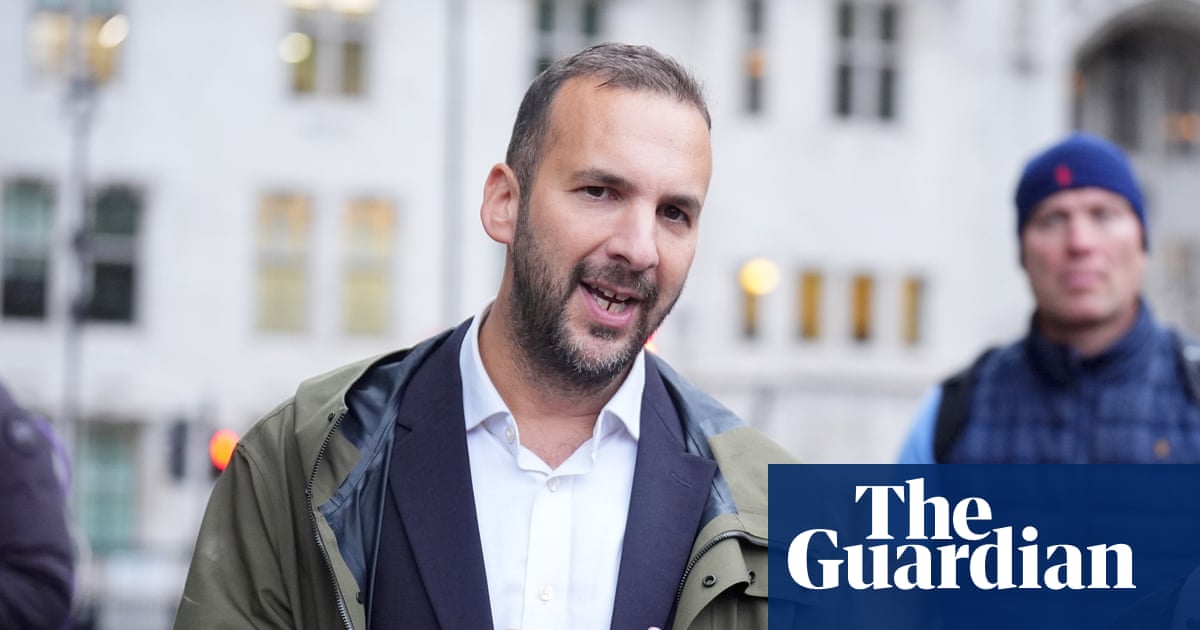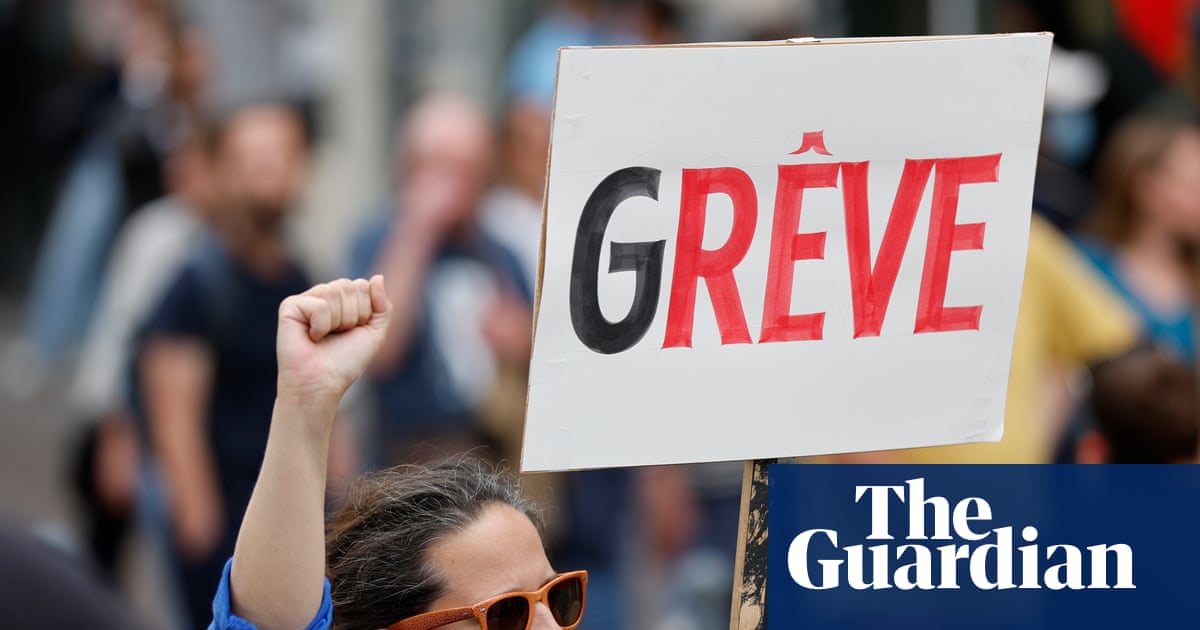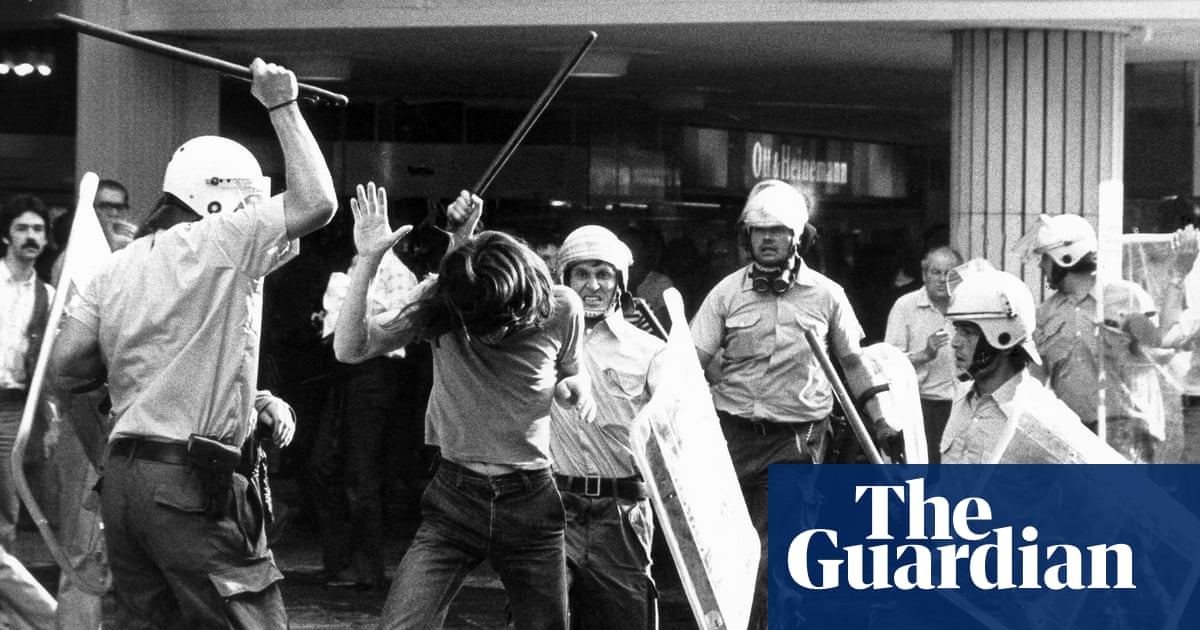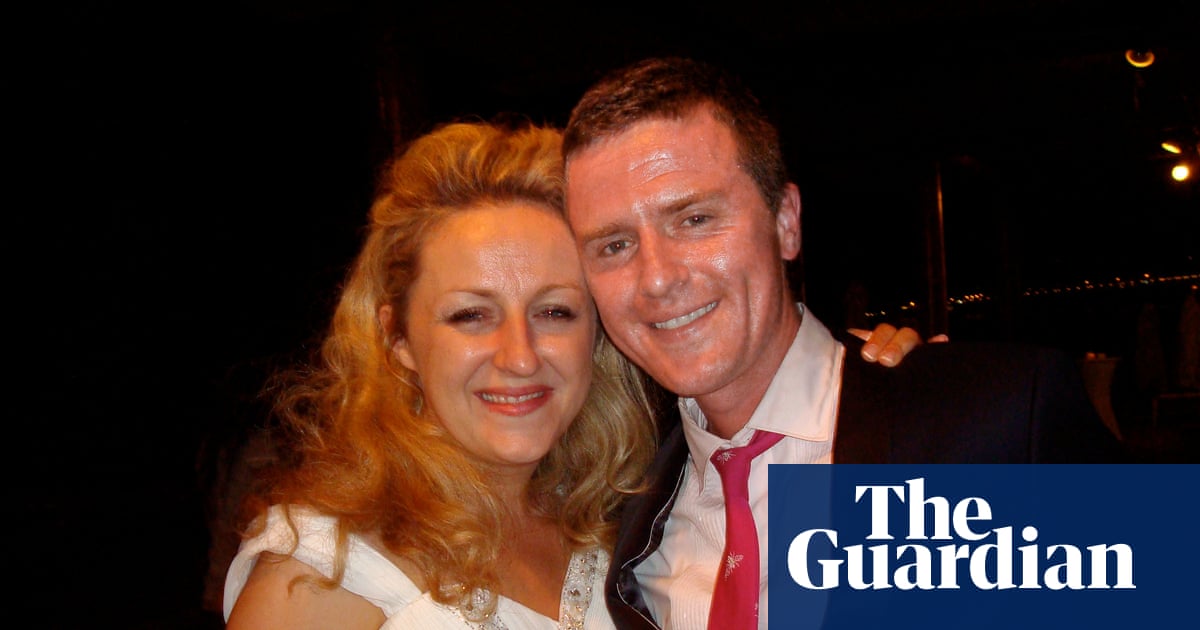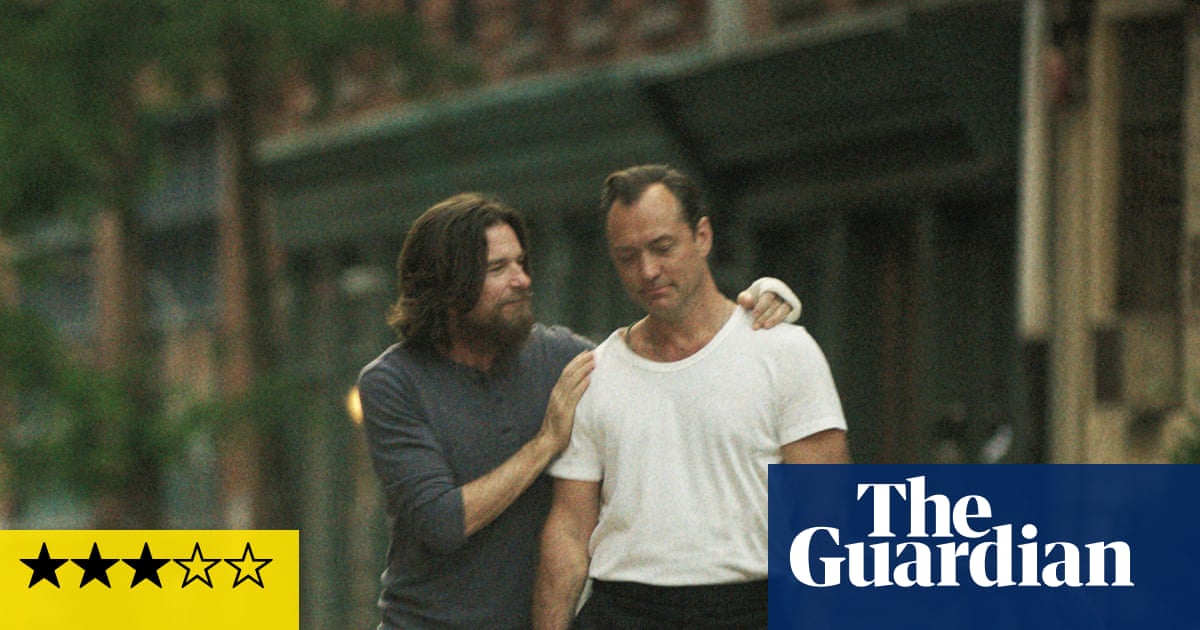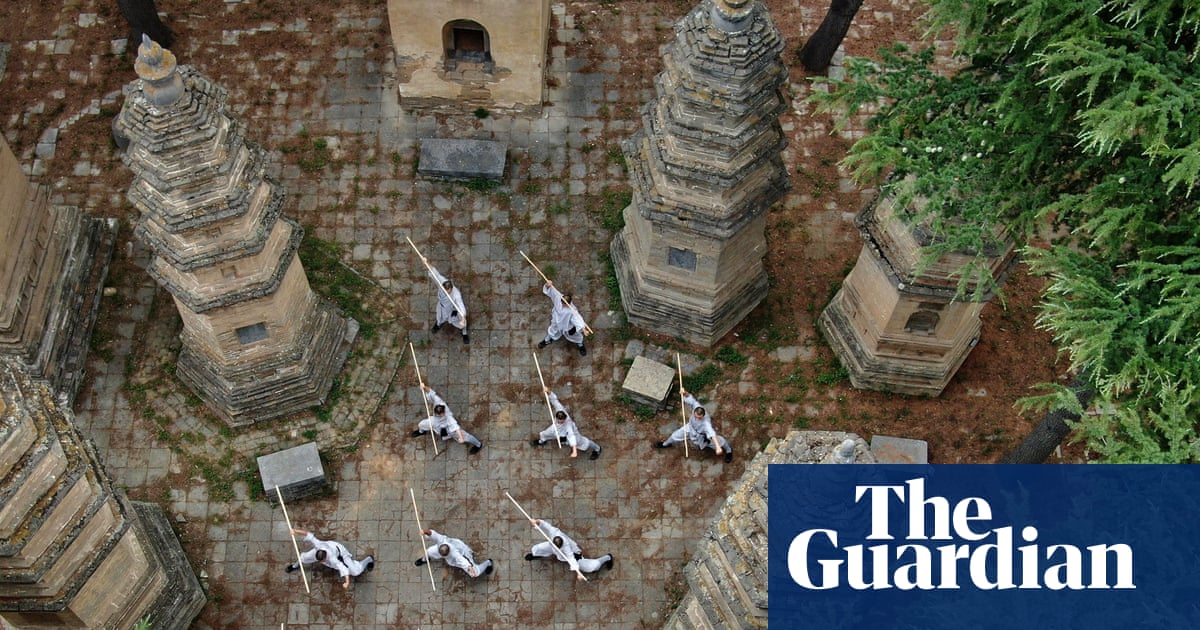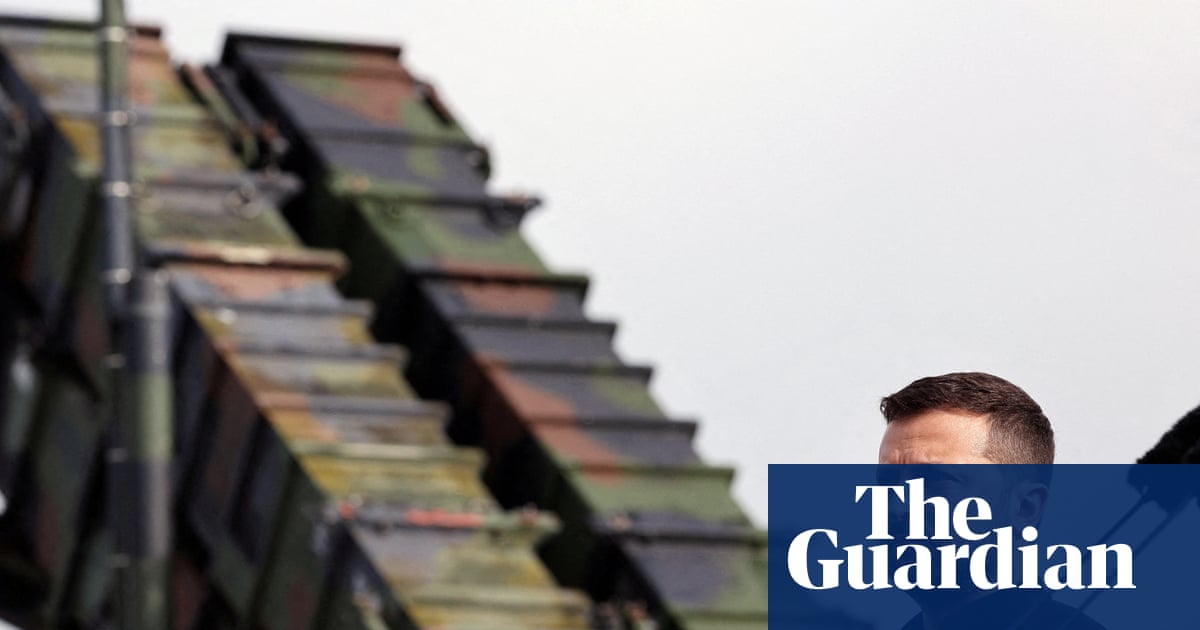Some like it hot, and Timothy Spall is among them. “Can I have an extra-large skinny cappuccino, absolutely boiling?” he asks the server from his seat at a pavement cafe. “The largest and hottest you’ve got. Illegally hot.”
Once we are alone again, Spall returns to what he was in the middle of discussing: 18th-century coffee-houses. “What they served didn’t taste like coffee. It was repulsive. I looked it up.” His curiosity is innate and all-consuming. When he was 16 and starring in a school production of My Fair Lady, he took it upon himself to visit the tenements on Tottenham Court Road in London where his character would have lived. At an even younger age, he secretly imitated the stooped walk of a stranger he spotted in the street. Not to be cruel. “I just wanted to know what it was to walk like that. How it felt inside. I still find myself doing it now. I’ll see somebody moving a certain way and I’ll try and copy that to feel where it comes from. I suppose that’s why I do what I do.”
As he talks in his fascinated way, the low-speed London traffic trundles past and the morning sun blazes through the canopy of trees above us. It all feels rather like being on holiday, and Spall is dressed for the part: untucked white shirt, cobalt blue jacket, loose striped linen trousers. “I’m partial to a stripe,” he says, admiring a leg and turning a Chelsea-booted foot this way and that. “I bought these in a shopping centre on the Strait of Messina. I just hope it doesn’t look like I shat myself then knocked on someone’s door to borrow their pyjamas.”
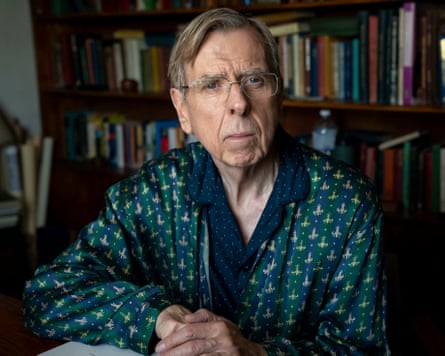
At 68, the Battersea-born actor has played sad-sack taxi drivers and world-class painters. He has been a Death Eater in the Harry Potter films, Britain’s last hangman, Ian Paisley and Winston Churchill (twice in fact, as well as publicly reading Churchill’s VE Day radio address earlier this month), as well as Santa Claus and even Margaret Rutherford. Some of his most exceptional work was seen recently on television: as a bewildered Duke of Norfolk in Wolf Hall, and the university lecturer Peter Farquhar, tormented and murdered by the young man with whom he believed he had found love, in The Sixth Commandment. That performance, which won Spall a Bafta and an International Emmy, amounts to a moving reclamation of a man who could have been seen as a victim but was instead rendered noble and even inspiring because of his ingenuous faith in love – and the actor’s skill in embodying that quality.
What could be left for Spall to play? One answer is: a lovable old ham who fancies that his former role as a TV detective has imbued him with the skills to solve crimes. What’s more, he turns out to be not entirely deluded. This is the BBC’s new “cosy crime” series Death Valley, its title flagging both the show’s carousel of murders and its Vale of Glamorgan setting.
Spall is John Chapel, an actor dimly remembered for playing the Maigret-like TV sleuth Caesar, who came complete with his own cheesier-than-Caerphilly catchphrase: “Crime waits for no man.” Chapel’s glory days are behind him. But when DS Janie Mallowan (Gwyneth Keyworth) – who is also a Caesar fangirl – knocks on his door during a routine appeal for witnesses to a murder, he brings his thespian training (“Character is action!”) to the investigation and helps Janie find the guilty party. It turns out that years of fathoming the behaviour of fictional characters has left him with some practical crime-fighting skills. The opening episode even gives Chapel a Poirot-esque revelation scene in which he reveals whodunnit and why to the gobsmacked suspects – in between posing for selfies.
That success, and his rapport with Mallowan, leads him to be a regular source of counsel on her subsequent cases. The generation-gap dynamic isn’t unprecedented: Only Murders in the Building features a young woman sleuthing with two luvvies, one of whom also made his name as a fictional TV detective. But Death Valley has a wryly parochial strain of humour. (Accused of being a hermit, Chapel protests: “I’m not a hermit. I went to Swansea last month!”) The show also gets a lot of mileage out of fusing buddy-comedy conventions with a weekly whodunnit and an affectionate ribbing of its thespian hero, who in one episode turns up as Claudius in an am-dram Hamlet.
As a seasoned pro himself, Spall helped develop the character. “I lampooned some aspects of acting and brought in some of the pretensions, the whole arse-ache embarrassment quality, but also the sincerity.” Bad behaviour among actors isn’t as common as people assume, he says. “The show is playing, coquettishly I suppose, with people’s preconceptions. But I’ve seen remarkably few displays of egotism in real life. We all just want to be brilliant, we’re all shitting ourselves and none of us want to look like twats. You want to give good value for money.”
This is an idea to which he often returns. “As I’ve got older, I’ve realised that you’ve got to do it for the audience. It’s our duty to give value for money. Stories can just be entertainment but they can also mean something.”
Death Valley falls into this category. “It’s lovely, isn’t it?” he says in between sips of his cappuccino. “Me, I always want the darkness. I try to turn everything into a Lithuanian art movie. And it’s not that, is it?” Not by a long chalk. The epitome of sparkling Sunday evening entertainment, Death Valley has even been bumped to BBC One from its intended home on BBC Two. “I had a feeling that might happen when we dropped the fruity language,” he confides.
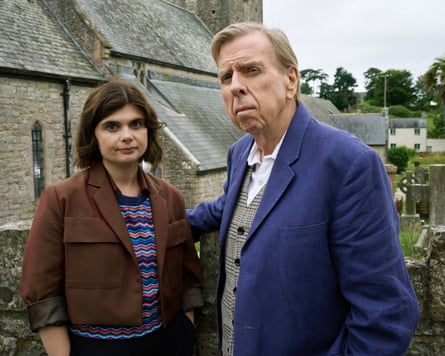
Of course, Spall has been in plenty of art movies, if not Lithuanian ones. Among his earlier film roles was an overgrown mummy’s boy in Bernardo Bertolucci’s majestic and desolate The Sheltering Sky. “Fourteen-hour trips across the Atlas Mountains,” he marvels. “Debra Winger, John Malkovich. My first scene was in a souk. Character names on the backs of the canvas chairs. I remember going: ‘Fucking hell, I’m in the movies!’ Then doing a scene with Debra and being so nervous and Bernardo saying afterwards: ‘Bellissimo.’ I’m thinking: ‘This is all right. I’ll remember this.’” He snorts at his younger self. “You’re the first person I’ve told.”
That African adventure came six or seven years after Spall had experienced overnight fame in his mid-20s as the droning Black Country electrician Barry in the ITV series Auf Wiedersehen, Pet. That was a hit in 1983, the year his actor son Rafe (the middle child of three) was born. Although Spall has never had a Caesar-style albatross of a role – he once turned down a TV detective series that felt too close to Robbie Coltrane’s Cracker – it is Barry, if anyone, who follows him around. “It disappeared for a while but then it was constantly on Dave or Bob or Colin. One of those channels.”
after newsletter promotion
The year before Auf Wiedersehen, Pet, Spall fell into the orbit of the director Mike Leigh, known for building his comic portraits of quotidian British life from a lengthy improvisation process. In Leigh’s TV play Home Sweet Home, Spall played a postal worker (coincidentally his father’s occupation). He was soon one of the film-maker’s most cherished collaborators, and won the best actor prize at the Cannes film festival for his visceral performance as JMW Turner, painting and grunting and rutting away, in Mr Turner. (Spall later became a painter himself.)
He was in his tuxedo on the red carpet for the Cannes premiere, flashbulbs popping away, crowds cheering. “I’m thinking: ‘Cannes, eh? This is the life.’” Then a lone, loud voice called out in an exaggerated Black Country accent: “All right, Barry?” Laughing now, Spall shakes his head. “I was straight back down to earth. You just go: ‘Fair enough.’”
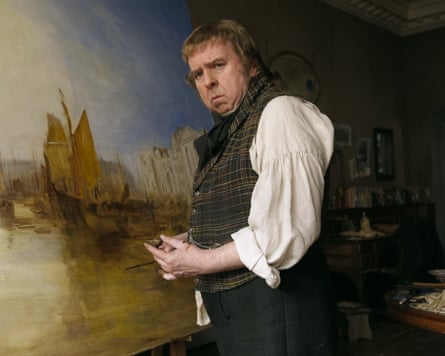
It is Leigh’s Secrets & Lies, in which he played a patient but put-upon high-street photographer, that has an enduring place in his heart. While the film was scooping the Palme d’Or at Cannes in 1996, Spall was in hospital with acute myeloid leukaemia. The movie became both a showcase for him and a placeholder while he was out of action. “I was in bed, hooked up to this electric soup, all these brilliant people trying to save my life, and wondering whether I was going to make it or not. As that was happening, Secrets & Lies was out there. And when I had the audacity not to peg it, I came back and found I had a film career!”
Not half. He enjoyed a Hollywood spell, working alongside Amy Adams (Enchanted), Tom Cruise (Vanilla Sky, The Last Samurai) and Johnny Depp (Sweeney Todd). One of his proudest recent experiences was playing the Queen’s equerry, opposite Kristen Stewart as Princess Diana, in the pleasingly bananas biopic Spencer.
Perhaps it is Spencer from which a passing stranger, somewhat the worse for wear, recognises him this morning. He stops at our table, waggles a thumbs-up in Spall’s face, and bellows: “Famous!” The actor knows how to handle this. “’Allo mate,” he replies affably, then watches the interloper stagger off into the distance. Once he is out of earshot, Spall mutters: “Cor, he’s lived a life.” The words are tinged with wonder and concern. You can sense him logging the details for later. He’ll be doing that stagger on his walk home for sure.
Death Valley begins Sunday, 8.15pm, BBC One.

 3 months ago
144
3 months ago
144
